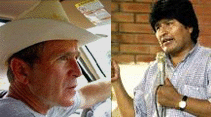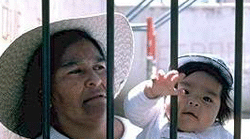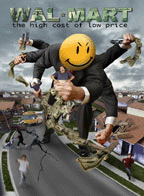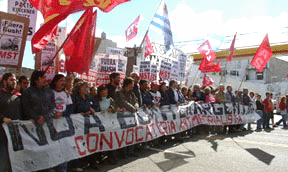
Americas


Sliding into the Soap Dish of the US War on Drugs
They call it La Jobónera, the "soap dish." I thought the nickname had been born because at first glance, the place looks like a wash-by-hand laundromat. Clotheslines run criss-cross through the open patio, giving shade like a tree as it drips dry above a place that feels more like hopelessly passing time than life. There is a constant scrubbing noise. Water is always running somewhere. Braids are tied back and sleeves are rolled up. But no, I was wrong. The "soap dish" has nothing to do with spending hours a day soaking and scrubbing soapy clothes. It gets its name because both getting in and getting out is slippery. Welcome to the San Sebastian prison. La Jabónera is not just any prison. It is a confined residence for women, most of them supposed narco-traffickers, and their children. A jail that does not provide food to its prisoners. A jail filled with 112 women, many of who do not know how long they will reside there, and are guilty until proven innocent.

The Wal-Martization of America and the High Cost of Low Price
As a history teacher for two decades now, the single best field trip I've ever taken with students involved a visit to a "local" Wal-Mart in

Sacramento City Council Votes For Withdrawal From Iraq
The Sacramento,CA City Council, by an 8 to 1 vote on November 1, called for "a humane, orderly, rapid and comprehensive withdrawal of United States military personnel and bases from Iraq." The Council also asked Congress and Bush to deliver "promised veterans' health, education, disability, and rehabilitation benefits, and otherwise meet the needs of returning veterans." Sacramento joins a growing list of cities, including Chicago, San Francisco and Philadelphia, calling for withdrawal. California's capital city is the second community in the Central Valley after Davis to support an anti-war resolution.

The NRA Comes to the Rescue (of the Firearms Industry)
Bravo, National Rifle Association! On October 20, 2005, Congress caved to the organization's relentless pressure and voted to pass the "Protection of Lawful Commerce in Arms Act" - a piece of lobbying, er, legislation designed to shield firearms manufacturers and dealers from liability lawsuits stemming from the use of their weapons in crimes. On October 26, President Bush signed the bill into law. In the words of NRA Executive Vice President Wayne LaPierre, "freedom, truth, and justice prevailed" with the passage of the bill; the NRA "scored "an historic victory," "protected the sanctity of the Second Amendment," and "saved the American firearms industry," which, goodness knows, is right up there with children and whales as a worthwhile cause. "Save the guns;" now there's a slogan.

Cold Reception for ‘Fortunate Son’ at Trade Summit
Thousands gathered at the Summit of the Americas in Mar del Plata, Argentina on November 4th to protest the presence of George W. Bush and his free trade agenda. Activists, along with Venezuelan President Hugo Chavez, vociferously rejected any U.S. free trade plans for the region as they believed such policies facilitate corporate exploitation. As an alternative, they advocated for a people-oriented trade block among progressive Latin American governments.
"The Free Trade Area of the Americas (FTAA) doesn´t seem like something that will help Argentina," explained 62 year old Betti Cruz, a member of the leftist Peronist political party, Barrios del Pie. "I run a food kitchen and see everyday how these policies of free trade are hurting the poor more and more."
